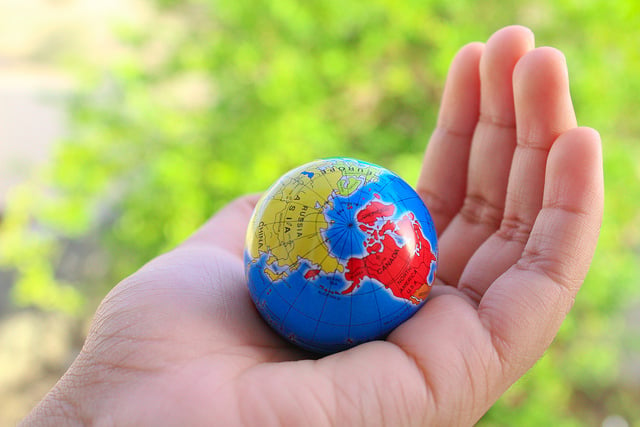
How Do We Change the World?
I have wanted to change the world for longer than I can remember.
Some people expected me to change the world, and at times I have expected it from myself. People talk about transforming the world in every commencement address. Other people sing about wanting to change the world. There appears to be something deep within most of us wanting to make a difference.
Our challenge can be summed up in one question: How do we change the world?
Be the Change You Wish to See in the World
A lot of us are drawn to the idea of being the change we wish to see in the world. Many of us also believe that is something Mahatma Gandhi said.
I like that idea, but am drawn even more strongly to what Gandhi actually said.
He said, “We but mirror the world. All the tendencies present in the outer world are to be found in the world of our body. If we could change ourselves, the tendencies in the world would also change.”
These words do not fit nearly as well on a bumper sticker or a coffee cup. They do, though, give us more tangible ways we can change the world.
Our ability to change the world is limited by what we can, and cannot, do.
We Cannot Force Other People to Change
No matter how much we want to, we cannot force other people to change. We can pass laws to make people behave in certain ways, we can win elections. Even our most insightful, effective arguments cannot make other people change.
Changing the world is not something we can do by changing other people. Even if we effect some temporary modifications, the world will not be transformed.
We Cannot Change What Has Already Happened
People may regret things they have done, decisions or actions they wish they could change. We may wish we had seen or done things differently. There may be parts of history we would like to erase.
Our history, even our personal experience, is a complicated network of choices. Each of us remembers our shared story in our own ways.
Changing the past is beyond our abilities. No matter what we do now, the past has already happened. We can work hard to heal the effects of the past, but we cannot make it different.
Those decisions, and that behavior, will not change. Even actions and thinking for which we were responsible in the past are beyond our ability to change.
As much as we wish we had acted differently, we cannot change what we have already done.
We Cannot Know What Might Happen in the Future
The future is as far outside our control as is the past. There may be things we can do to sow the seeds of futures we would like to become real. We might want to influence the direction of the future.
The story unfolding in the future is as complex and personal as the story of our past. We are not able to predict what will happen or how people will respond.
Can We Change Ourselves?
Gandhi said, “If we could change ourselves, the tendencies in the world would also change.”
There are many levels to the truth and wisdom of this observation.
First, it recognizes the one thing we can influence is ourselves. We can decide how we will see and live in the world. While it may help us to read and listen to the words of others, we are responsible for ourselves.
There are people who say they believe in certain truths but act in ways contrary to them. Each of us is responsible for putting our beliefs and values into practice in everyday life.
When we say we have spiritual life within us we need to act in ways which make it evident.
Second, it understands the world changes when we change how we experience it.
We may feel discouraged or frustrated by the world right now. It may be we have specific ways we would like to change the world and a clear plan of action.
Part of what Gandhi is telling us is we change the world by seeing it differently.
There are quite a few things I would like to change, or fix, in the world. I see injustices and foolish decisions which cause real suffering and pain.
Gandhi is telling us the injustices and foolishness reflect who we are. As we gain awareness and understanding, we will see conditions in the world in new ways. Our ways of seeing shape our contributions which change the world.
How Are We Changing the World?
I grew up believing I could, and would, change the world. One of my concerns was that the most important issues would all be resolved before I was old enough to help.
My understanding of changing the world was about changing other people. I thought I could figure out practical solutions and teach other people how to use them. If we just took enough time to think through these difficult questions, everything would work.
For me, the most significant ways I have changed the world are about how I experience it.
The world has become a more welcoming, more intriguing place. It is a place to listen and learn from other people, not hand them my answers.
There are still problems and still work which needs to be done. The ways we change the world grow from our shared core values, not a list of the right answers.
Rather than studying problems and searching for solutions, my focus is more on who I am. Each of us, by knowing and being our true selves, changes the world every day.
We cannot change the past and we cannot predict the future. It is impossible for us to change other people. We change the world by discovering and sharing our true stories.
Changing ourselves is enough to change the world.
How will we change the world today?
Will we change ourselves?
[Image by Naina_94]
Greg Richardson is a spiritual life mentor and leadership coach in Southern California. He is a recovering attorney and university professor, and a lay Oblate with New Camaldoli Hermitage near Big Sur, California. Greg’s website is StrategicMonk.com, and his email address is [email protected].












